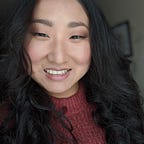Where are you REALLY from?
Okay, I’m going to answer that question right off the bat. I am adopted from China, and I honestly know very little about my original home town. I’ve seen pictures, heard stories, and even watched documentaries, but I’ve never experienced it. It’s been on my bucket list for a while.
I don’t even remember when I found out I was adopted, it might have been self explanatory. In my early days, I remember being different, different hair color, eye color, and skin color. In many ways my family worked hard to make the differences an excuse to celebrate my uniqueness in our daily lives. For one of my birthdays my family spray painted their blonde hair black for my birthday (it sounds like it was in bad taste,but I loved it).
My parents tried to keep me involved with cultural groups, like dance and language classes, but I was never into it. Not because I wasn’t interested, but because I immediately fell into a category. Chinese girl, adopted into a caucasion family (my dance class was filled with identical situations). It felt more like a label than my race difference, and with time the classes slowly disappeared from my life.
Growing up, I remember people asking where I was from, speaking to me in chinese, or thinking I didn’t even belong with my family group. It stung, and often took me back for a second, but I got used to it and learned to live with the constant replies of “I am from China”, “I’m sorry, I don’t speak chinese” (in my very american accent), and “I am with them”.
As I got older, friends were sometimes the worst. I often forgot my different looks, in my house it was never mentioned, but in school — I was asked the same questions that strangers asked me. The most popular though, was “where are you from?” or “WHAT are you?”
Friends would ask — do you ever want to be white? And I remember thinking about my response — it was often a short no (but in secret, sometimes it was… yes). My friends mostly consisted of non — asian individuals, so I was never the friend who was called the twin or the sibling. These little instances really hurt, but I learned to mask it and eventually learned to own my differences. This was definitely not over night, and took a lot of self love. No one can really make you happy about you, except you.
Once I got to my teens the stereotype shifted into something more adult. There were times where the shift was thrown in my face, while other times it was less recognizable. Once my father took me to a restaurant after one of my choir concerts, and the hostess seated us in a private room. It wasn’t until we asked to be moved to the main dining room that it dawned on me — they thought I was only with him for the night.
In high school and college I no longer knew if people liked me for me or if it was an “asian thing”. Sometimes it became self explanatory, a phrase like “I’ve never been with an asian girl” would eventually be verbalized or “can you speak with an accent?” and it would set off my radar.
As an adult — I still deal with these insecurities. The difference now is that I know where to spot them, and how to digest them, and eventually grow past them. Like all things, it ebbs and flows — with time, with news, and with who I meet.
